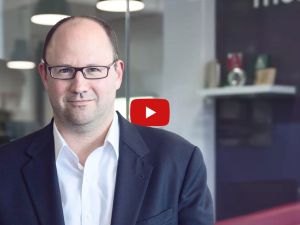Chocolate knows how to tempt you. It melts slowly, releasing rich notes of cocoa and sugar. But after that blissful first bite, an unexpected aftertaste may linger – a faint twinge of guilt.
A treat like chocolate offers instant gratification, but it can also leave behind a lingering doubt – have we overindulged or simply surrendered to temptation? This delicate dance between pleasure and guilt goes far beyond a chocolate bar; it mirrors a universal balance between momentary satisfaction and long-term well-being.
We face a similar dilemma when it comes to managing our money: should we spend on today’s pleasures or save for tomorrow’s goals? This World Chocolate Day, July 7, we explore the subtle balance between indulgence and discipline.
The difference between instant gratification and long-term goals
The value of delayed gratification as a virtue, opposed to immediate indulgence, is a cornerstone of Western culture that can be traced back to its philosophical and religious roots.
In ancient philosophy, for instance, Socratic moderation and Aristotle’s principle of the “golden mean” celebrate self-control as a form of practical wisdom. Stoicism, from Zeno to Seneca, grounds human dignity in the ability to master passions and postpone pleasure in the name of virtue and rationality.
In stark contrast stands the archetype of unrestrained desire, portrayed in myths and literature with figures like the suitors in The Odyssey, feasting unlawfully in Odysseus’ home, or, in Roman times, characters like Trimalchio, gorging on excess at the twilight of the Republic.
This tension between discipline and indulgence spans centuries and is further reinforced by Christian ethics, especially Catholicism, which frames the renunciation of worldly pleasures as a condition for salvation. The notion of a “delayed reward”, such as heaven after earthly suffering, becomes a central narrative structure in Western spirituality.
Major idealistic movements, religious or secular (from communism to Christian personalism), echo this logic: the belief that personal or collective transformation requires an intermediate phase of sacrifice, deprivation, or struggle. Whether it’s the “sun of the future” or the kingdom of heaven, the promise of a greater, more enduring good serves to justify present-day discipline and the long wait.
A more academic and psychologically grounded example, perhaps closer to the everyday experience, is the famous “marshmallow test.” Conducted in 1966 at Stanford University, the experiment presented children with a choice: one treat immediately, or two if they could wait. Those who waited tended to achieve better academic and professional results in later life. The ethical takeaway is clear: those who resist immediate temptations in favour of greater rewards tend to be more successful in life.
Our culture often celebrates willpower and frugality, while casting hedonistic excess as a threat to personal growth and achievement.
Yet recent psychological studies are starting to challenge this rigid view. While some self-control is undoubtedly beneficial, avoiding pleasure altogether doesn’t make us happier, healthier, or more successful. In other words, those who attempt to ban indulgence from their lives entirely don’t gain a clear advantage.
In fact, consciously embracing short-term desires by knowing when and how to indulge can enhance our well-being without undermining long-term goals.
This more balanced approach also emerges in positive psychology. For example, one study found that during a diet, scheduling a “cheat meal” once a week boosts mood and motivation, helping participants stay committed without compromising progress.
A loan to our future selves
When it comes to saving and spending, though grounded in similar moral and psychological dynamics, the conversation shifts slightly. Saving, by delaying spending today, literally means shifting money across time. It’s essentially a loan to our future selves. But that idea raises questions. Will our future selves actually need the money we’re putting aside, at the cost of today’s dinner out or holiday? Or, looking back, would they tell us: “Spend it now! Enjoy it while you can!”
By setting aside even a small amount, investing it and putting it to work in the markets, and waiting 10 to 15 years, we could afford some of lifes milestone moments, like buying a home, opening a business or a dream holiday. Investing is a powerful choice, and the good news is that we often underestimate how small, consistent sacrifices could compound into substantial long-term gains.
That said, a healthy approach to saving means steering clear of extremes. On one end is hyperopia, or the “savings syndrome”: projecting excessively into the future at the expense of the present. Hyperopic individuals systematically avoid any non-essential expense, in a lifestyle of rigid restraint, often living very frugally. They save with precision, but often at the expense of constant anxiety and dissatisfaction, sacrificing happiness and enjoyment now, all for a laser-focus on their financial future.
At the other extreme is status quo bias, one of the most deep-seated and easily overlooked tendencies. It reflects our instinct to favour inaction over the uncertainty of change. In finance, this often results in paralysis: even when people recognise the benefits of investing, many hold back, held up by scepticism, distrust, or simple procrastination. They convince themselves that small, regular investments won’t really make a difference, or that “it’s too late now.”
To make things worse, loss aversion plays a major role, and it’s one of the best-known behavioural biases. Nobel laureates Daniel Kahneman and Amos Tversky showed that losses hurt more than equivalent gains feel good. That’s why even small negative market fluctuations cause disproportionate emotional discomfort, while long-term benefits often fail to elicit the same emotional response. This fear of loss often carries disproportionate weight, standing in the way of potentially beneficial decisions and balanced risk-taking.
But, it’s not just fear: overanalysis and feelings of inadequacy also feed inaction. Finance is often seen as a hostile, technical field reserved for experts. This sense of the unknown breeds anxiety and indecision. Many convince themselves that without specialist knowledge, it’s safer to do nothing. But this “safety” is an illusion: at best, money sits idle; at worst, it loses value due to inflation. And therein lies the paradox: avoiding action out of caution may lead to certain loss over time, a far more dangerous trap than the occasional indulgence.
Let’s imagine having £30,000 in a savings account earning very low interest. If left untouched for ten years, it won’t grow; it might even lose purchasing power. But, if we spend £10,000 now on something that brings enjoyment or pleasure (like an exotic holiday), and invest the remaining £20,000 in an equity fund yielding an average 7% net annual return, that invested capital could grow to over £39,000 in ten years. Despite spending a significant portion, we’d still end up with more than if we had done nothing. This of course is just a simplified example. Actual returns vary, and investments can go up or down. This assumes no withdrawals, fees, or tax. So the message isn’t to spend recklessly, but rather to find balance and invest the money we do save. And most importantly, don’t be tempted to just do nothing.
Practical tips for finding balance
So, how can we find a healthy balance between enjoying the present and preparing for the future? Without being prescriptive, here are a few suggestions to help foster more mindful and sustainable financial habits.
1) Save, but don’t sacrifice everything
Try to distinguish between unnecessary expenses and those that truly enhance your well-being. Cutting everything can lead to frustration and demotivation. Self-deprivation isn’t always a virtue; a thoughtful financial strategy begins with intentionally focusing on what truly matters to you – this could be a hobby, travelling or investing in yourself.
2) Don’t underestimate the power of time and compound interest
Even a modest amount, say £50 a month, invested consistently with an average return of 5% could grow into over £10,000 in 15 years. Time is favourable to the disciplined investors. Don’t be discouraged if early progress feels slow; zoom out and look at the long-term.
3) Incorporate meaningful indulgences into your plan
Regular rewards can increase long-term commitment. Scheduling a monthly treat, like a dinner out, a small gift, or a special evening, won’t derail your long-term goals, but can make you more likely to stick to them for the future.
4) Overcome regret paralysis
Thoughts like “I should’ve started sooner” or “Why didn’t I save more?” are understandable, but unhelpful. We can’t rewrite the past. The best time to invest was 20 years ago; the second-best time is today.
5) Don’t be paralysed by fear of making mistakes
Many avoid investing because they feel unsure. But today, there are simple, accessible tools, plus professional advisors whose job is to help manage risk. It’s better to start small and learn than to wait endlessly for perfect knowledge.
6) Build a more relaxed relationship with money
Money shouldn’t be a source of anxiety or shame, but a neutral tool to build autonomy, peace of mind, and quality of life. Take time to review your financial strategy, talk with a trusted person or partner. Even the simple awareness of having a coherent plan can bring joy – a form of immediate gratification that lightens the weight of sacrifice.
As always, the beauty lies in the balance you strike. It’s not about choosing between hedonism and asceticism, spending and saving, present and future. It’s about crafting a dynamic equilibrium that lets us live with greater clarity, flexibility, and intention. Because yes, investing matters. But treating yourself to a piece of chocolate now and then matters too.
Wealth, together
If you’re weighing up your next financial step, but aren’t quite sure where to begin, our managed portfolios are designed to make the process clearer and accessible. Built and overseen by our experienced investment team, they offer a diversified, long-term approach tailored to your goals and risk profile. With full visibility through our app, you can invest with confidence – knowing that your money is being managed with care and expertise.
Please remember that when investing, your capital is at risk. The value of your portfolio with Moneyfarm can go down as well as up and you may get back less than you invest. Past performance is not a reliable indicator of future performance. The views expressed here should not be taken as a recommendation, advice or forecast. If you are unsure investing is the right choice for you, please seek financial advice.
*As with all investing, financial instruments involve inherent risks, including loss of capital, market fluctuations and liquidity risk. Past performance is no guarantee of future results. It is important to consider your risk tolerance and investment objectives before proceeding.





